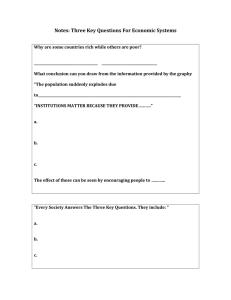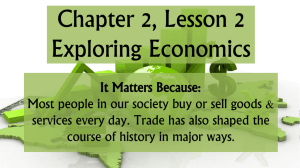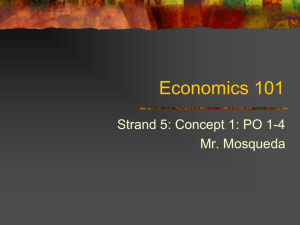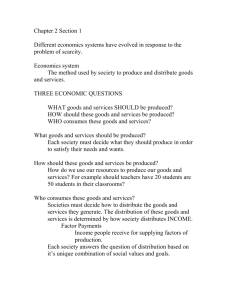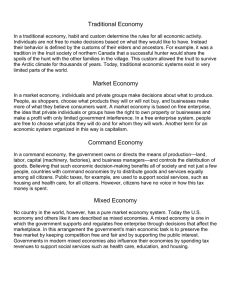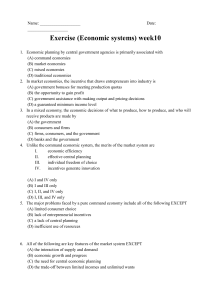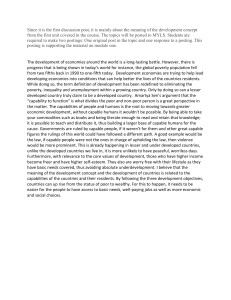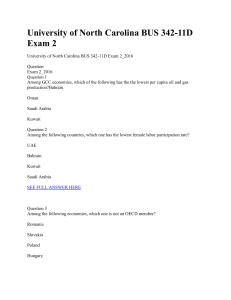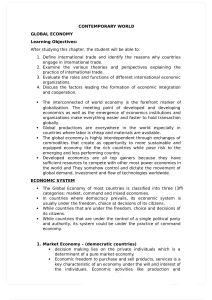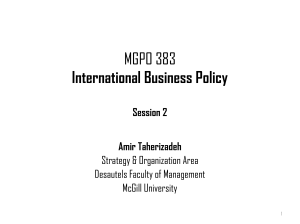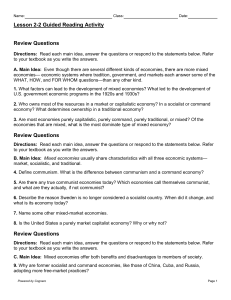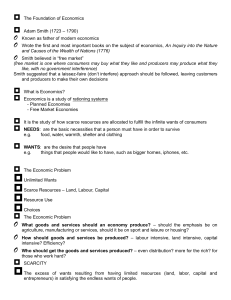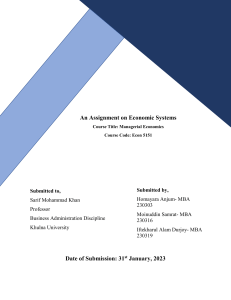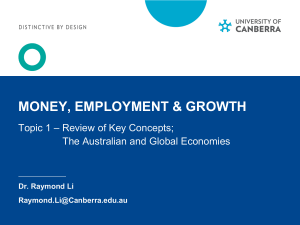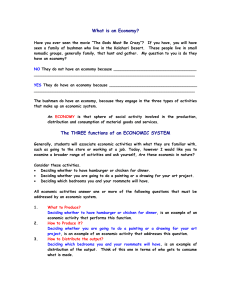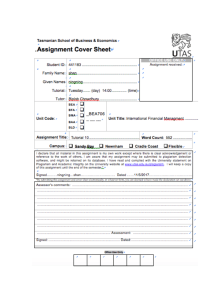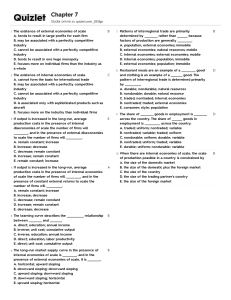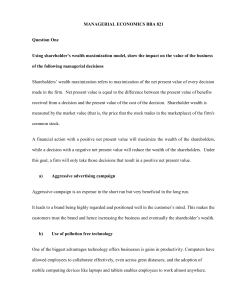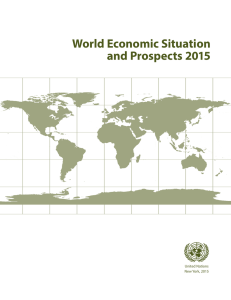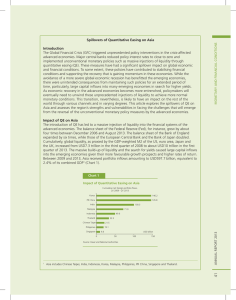Civics & Economics: Types of Economies (CE.11b)
advertisement
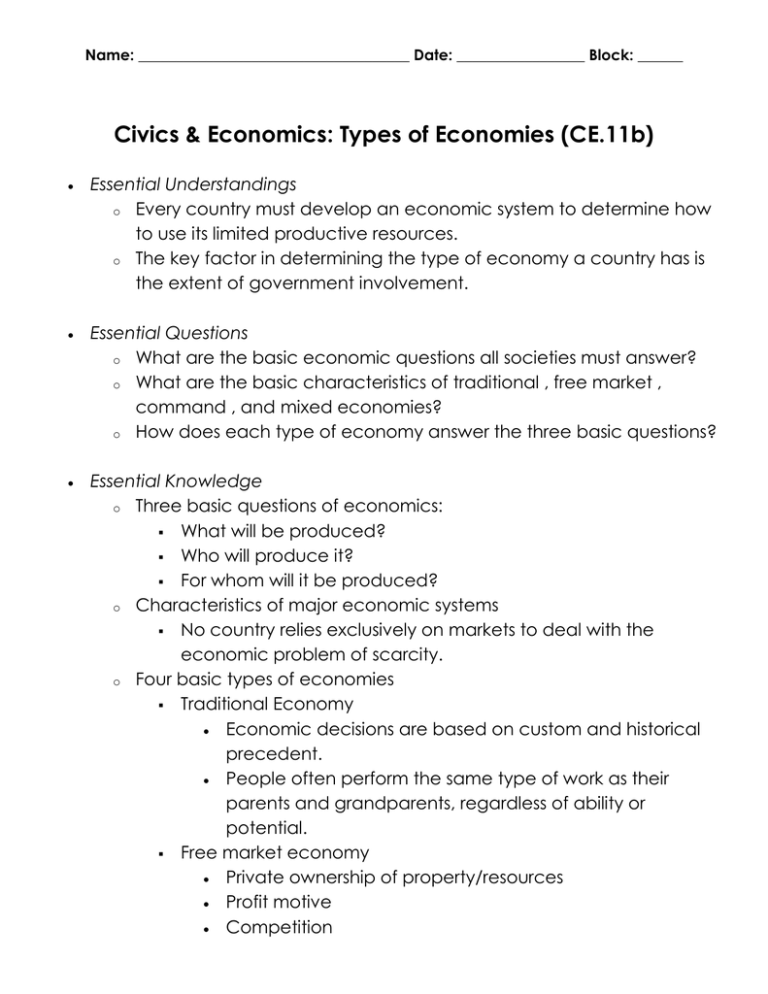
Name: ____________________________________ Date: _________________ Block: ______ Civics & Economics: Types of Economies (CE.11b) Essential Understandings o Every country must develop an economic system to determine how to use its limited productive resources. o The key factor in determining the type of economy a country has is the extent of government involvement. Essential Questions o What are the basic economic questions all societies must answer? o What are the basic characteristics of traditional , free market , command , and mixed economies? o How does each type of economy answer the three basic questions? Essential Knowledge o Three basic questions of economics: What will be produced? Who will produce it? For whom will it be produced? o Characteristics of major economic systems No country relies exclusively on markets to deal with the economic problem of scarcity. o Four basic types of economies Traditional Economy Economic decisions are based on custom and historical precedent. People often perform the same type of work as their parents and grandparents, regardless of ability or potential. Free market economy Private ownership of property/resources Profit motive Competition Consumer sovereignty Individual choice Minimal government involvement in the economy Command economy Central ownership (usually by government) of property/resources Centrally-planned economy Lack of consumer choice Mixed economy Individuals and businesses are owners and decision makers for the private sector. Government is owner and decision maker for the public sector. Government’s role is greater than in a free market economy and less than in a command economy. Most economies today, including the United States, are mixed economies.
